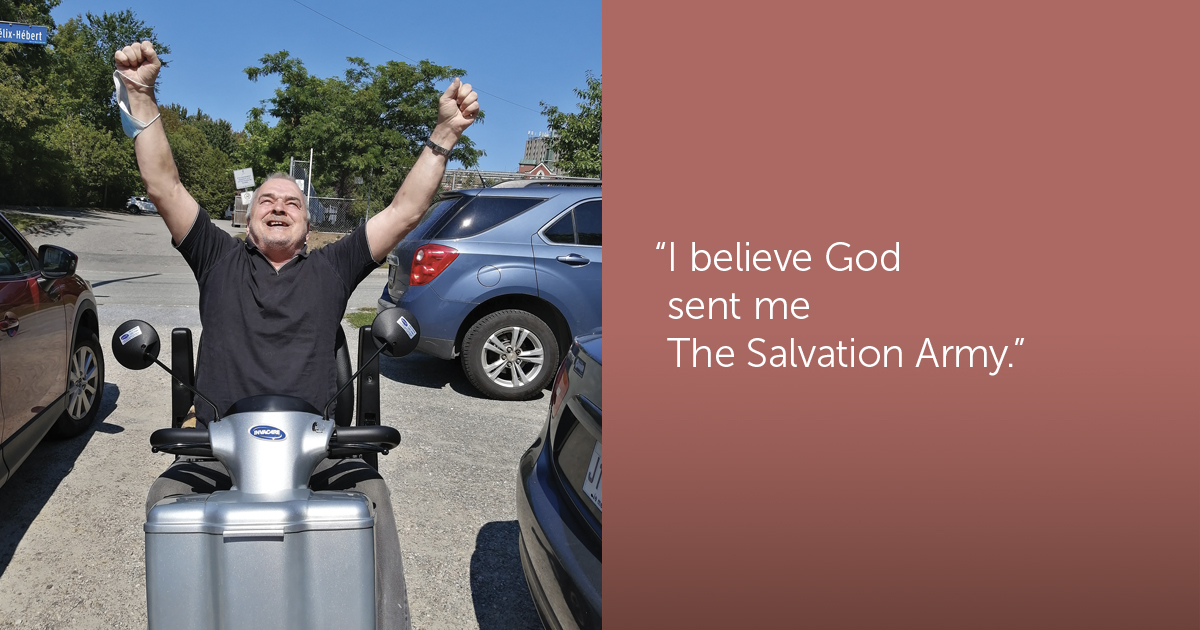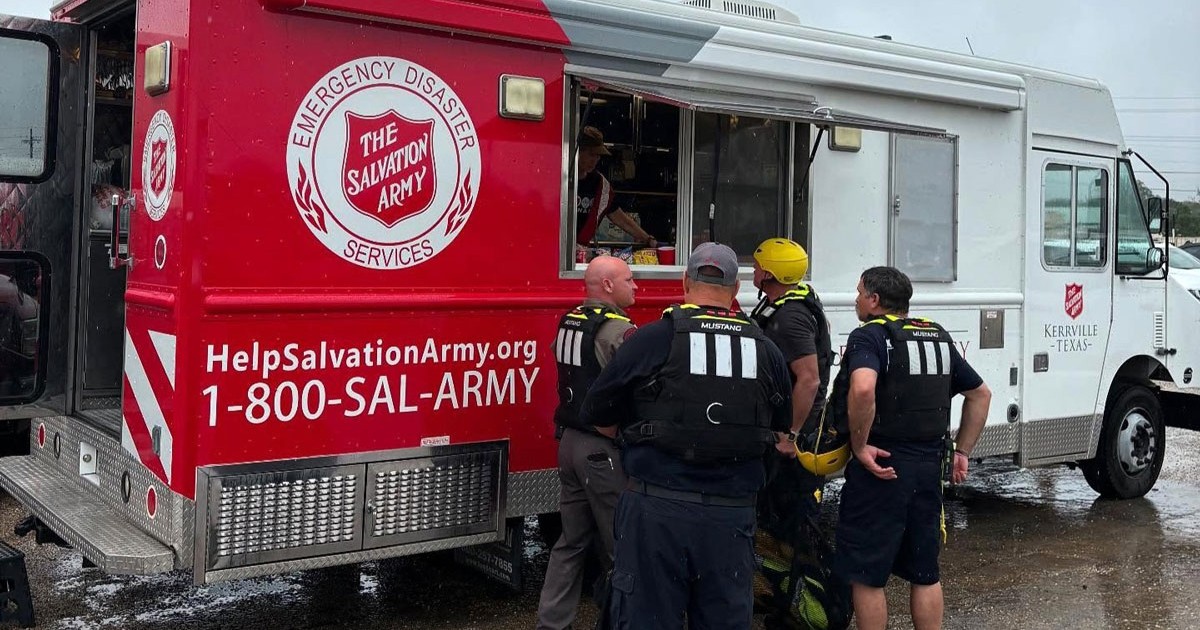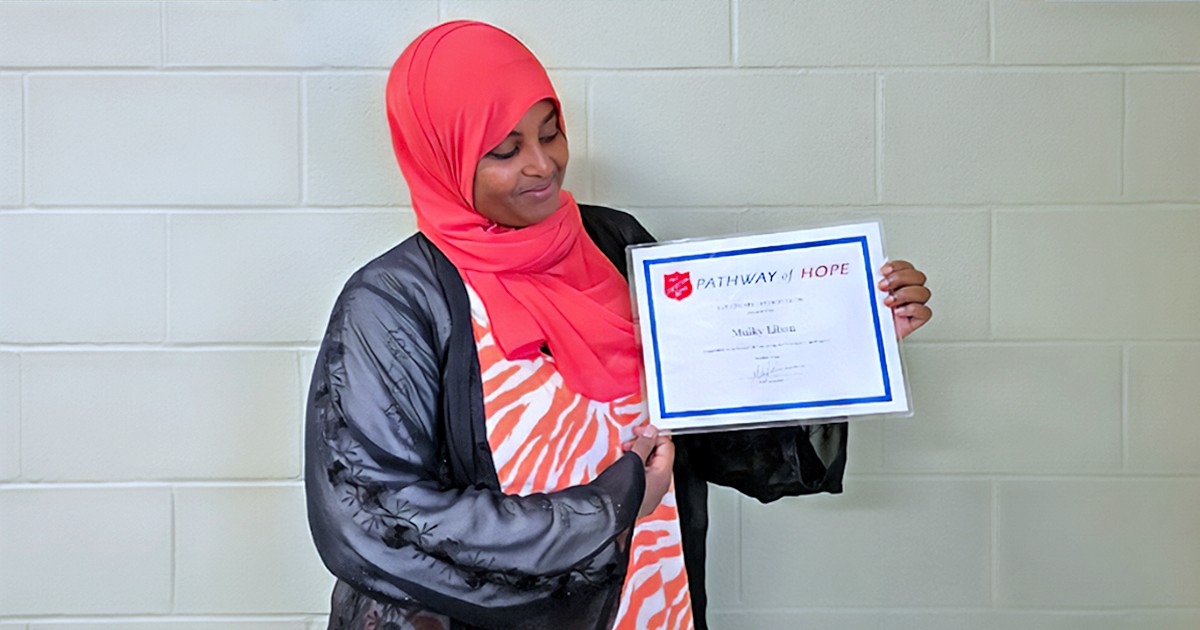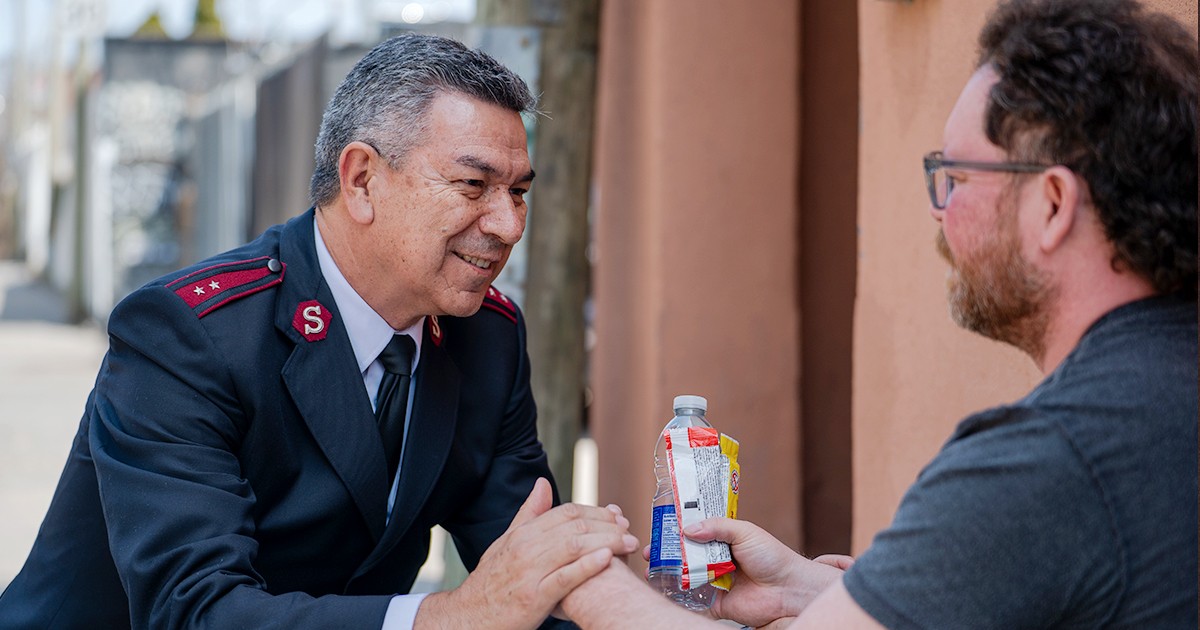I first met Clément last March, at the height of the pandemic, when we were handing out supermarket gift cards to those in need. A client of The Salvation Army’s community and family services in Sherbrooke, Que., for a number of years, he was unemployed after being released from his job as a glass fitter due to difficulties with drugs and alcohol.
Despite a hard life, he still believed in God and filled out a questionnaire we had handed to him, indicating that he was interested in exploring his spirituality.
After a few meetings, it became obvious that Clément wanted a new start in life, but he needed to overcome many challenges. He was a perfect candidate for the Army’s Pathway of Hope program, a case-management approach designed to break the cycle of crisis and vulnerability. I provided him with background information and he enrolled immediately.
“I want to change my life,” he told us in May, “and I am asking God to lead me to the right people.”
Together in Hope
Clément demonstrated goodwill but was easily discouraged. He felt useless and expressed deep regrets about his lifelong substance abuse. And part of him just couldn’t accept the consequences of the bad choices he made in the past.
“But thanks to the Pathway of Hope,” he said, “I’m determined—for once in my life—to go through with something that will help me.”
The first objectives of his Pathway of Hope personal recovery plan were health-related: new glasses and a new mattress. Although these purchases brought him some joy and encouragement, Clément was on an emotional roller-coaster and was easily discouraged. He even considered walking away from the program.
One afternoon in July, I had a chance to talk to him when he arrived to get some food from our community and family services. I was able to convince him to continue on with the program—and that we would do it together.
“Homework” and Health
Gradually, Clément started to come around and even started to attend church regularly.
“I enjoy worship,” he told us. “I’m making new friends and I am feeling the love around me.”
And the church family was involved in the process, keeping abreast of his progress and praying for him.
Over the summer, while the Pathway of Hope program was closed, I met with him on Sundays after the service, and we chatted on the phone. François, his spiritual advisor, also met with Clément during the summer to give him encouragement.
I’d given Clément an exercise book where, every day, he had to write down two things he was thankful for. Grumbling at first, Clément started to faithfully do his “homework,” and his positive thoughts soon outweighed his negative ones. He had taken the first steps on a lifelong journey.
And with our assistance and that of several specialists—including a dentist, cardiologist, urologist and psychologist—Clément finally started to take care of his health.
Reaching Goals
At the end of August, I met with Clément to discuss the next objective of his recovery plan, something he had mentioned several times before: transportation, so he could move around more easily. The solution was to purchase a four-wheeled scooter. Some church members found him one at a reasonable price and helped him to purchase materials to build a shed to store it. And an interest-free loan was even negotiated.
In September, Clément obtained the loan. He was feeling much better and had a more positive attitude about life.
“I believe God sent me The Salvation Army,” he told us.
Motivated, he started doing volunteer work in the church kitchen. His scooter provided him with a newfound autonomy, and he felt happy and useful again.
This past October, Clément purchased a laptop and accessed the internet, because he knew he would be going out less during the winter. Obtaining insurance for his personal property and his scooter, he ticked off further objectives on his to-do list. And he even had some money left in his bank account at the end of the month!
Clément goes to church now almost every Sunday, and the congregation continues to pray for his spiritual development. Soon, he will graduate from the Pathway of Hope program, but we’ll see him in church and keep in touch with him while he volunteers in the kitchen. Clément is on his way.
The Salvation Army’s Pathway of Hope succeeds when clients are willing to improve their lot in life and to devote their efforts to overcome their difficulties. The Salvation Army’s role is to support and encourage them—and help them reach their goals.
Johanne Roy is a senior soldier at The Salvation Army’s Sherbrooke Corps, Quebec Division.
This story is from:










Leave a Comment